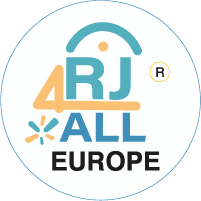Restorative Justice Case Management
RJ4All Europe accepts referrals for restorative justice cases. Our restorative justice practitioners work with individuals, families, groups, harmed and harming parties, and can intervene at any stage in and beyond the criminal justice system independently of country and location.
We can support a wide range of cases from family conflicts, neighbourhood disputes, anti-social behaviour, criminal cases including violence, domestic abuse, hate crime.
We work across all ages and especially with young people.
What qualifies as a case for restorative justice?
We accept referrals for a wide range of cases. This includes any event or situation, where individuals believe they have been harmed or may have caused harm. This includes:
Family conflicts
Neighbour disputes
Anti-Social Behaviour
Criminal cases including violence, domestic abuse, hate crime.
To qualify, we expect the person who is being referred to have consented to take part in our programmes. We work across all age groups including young people.
RJ4All accepts referrals for:
- Direct interventions (mediation, Family Group Conferencing, circles)
- Indirect interventions (letters, virtual meetings)
- Rehabilitation and restitution work.
If you are not sure regarding suitability, do email us at referral@RJ4All.org.
Who can refer to us and how?
Anyone can refer to us. We accept:
- Self-referrals – If you feel you have been part of an event that caused harm either to yourself or to another, you can submit a referral to us:
- If there is a case / reported crime: You can ask the agencies in charge of your case to make the referral for you on our form (they have an obligation to do so if requested) – This can be your probation officer, police, etc.
- If there is no case / reported crime: Please fill out our referral form.
- Standard referrals – Agencies from within the criminal justice system can submit a referral. This can be at any point during the process (before or after a crime is reported), before and after a case went through court, and before or after an individual went to prison.
- Third-party referrals – Organisations outside of the criminal justice system can also make referrals (GP, health staff, support services), as well as family or friends.
Our Restorative Justice Approach
At RJ4All Europe, we understand restorative justice as “an ethos with practical goals, among which is to restore harm by including affected parties in a (direct or indirect) encounter and a process of understanding through voluntary and honest dialogue. Restorative justice adopts a fresh approach to conflicts and their control, retaining at the same time certain rehabilitative goals” (Gavrielides 2007: 139).
We have a positive approach to rehabilitation meaning that we apply the Good Lives Model by seeing the talent in every individual vs managing their risk (vs Risk Need Responsivity Model). We have a holistic approach when applying restorative justice which includes direct restorative justice practices (in the form of mediation, family group conferencing and circles), employment, education, mental health support, training and 1-1 mentoring.
We apply the values and ethos of restorative justice including power sharing, equality, dignity and respect. Therefore, we see all our projects and interventions as voluntary and thus we expect the person that is being referred to have consented to take part in our programmes.
For further information, or to discuss a potential referral including costs, please contact Dr. Theo Gavrielides via email: referral@rj4all.org


